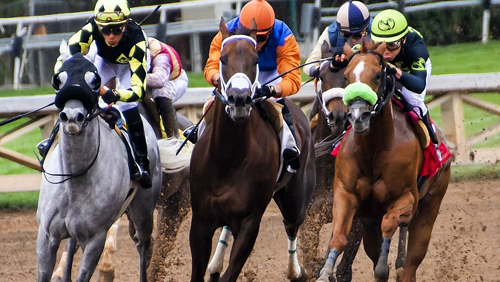Federal prosecutors in New York allege that a group of individuals were collaborating to provide racehorses with performance-enhancing drugs to help them win races across the globe. This according to court documents filed in New York on Monday.
According to court documents, 27 people have been charged in the scheme. U.S. Attorney Geoffrey S. Berman noted: “The charges in this indictment result from a widespread, corrupt scheme by racehorse trainers, veterinarians, PED (performance-enhancing drug) distributors and others to manufacture, distribute and receive adulterated and misbranded PEDs and to secretly administer those PEDs to racehorses under scheme participants’ control.”
Berman goes on to add that races in New York, Florida, New Jersey, Kentucky, Ohio, and the United Arab Emirates were likely affected.
Of the 27 people charged, several prominent names within the horseracing industry are named, including Jason Servis, the trainer of Maximum Security, last year’s Kentucky Derby winner. Servis is alleged to have given performance-enhancing drugs to “virtually all of the racehorses under his control.” If true, it means that 1082 races between 2018 and 2020 were likely tainted.
Jorge Navarro, another prominent trainer, is also alleged to have “orchestrated a widespread scheme of covertly obtaining and administering various adulterated and misbranded PEDs (performance-enhancing drugs) to the racehorses under his control.” He previously had a horse that tested positive for cocaine in 2017.
Berman explained that “These defendants engaged in this conduct, not for the love of the sport, and certainly not out of concern for the horses, but for money, and it was the racehorses that paid the price for the defendants’ greed.”
William Sweeney Jr., the assistant director in charge of the FBI ‘s New York office revealed to reporters that the drugs that were involved were meant to “increase their performance beyond their natural abilities” by increasing the red blood cell count, increasing stamina and endurance, as well as reducing pain and inflammation.
One of the key pieces of evidence is an intercepted phone call of horse trainer Nicholas Surrick. During the February 1, 2019 call, he is alleged to have said “You know how many f—ing horses (Navarro) fu–ing killed and broke down that I made disappear … you know how much trouble he could get in … if they found out … the six horses we killed?”
This investigation has been going on for two years. No court date has been set as to when the defendants are expected to appear.
This scandal, which reaches all across the horse racing world, is not what the industry needed at all. It comes just about a year after Santa Anita saw a sudden surge in horse fatalities, which had trainers quoted as saying the horses were the most important part of the industry, and had PETA calling for the track to be shut down. Doping allegations, which can be tied to dead horses in this case, could lead to much stricter regulations, and less business overall.
